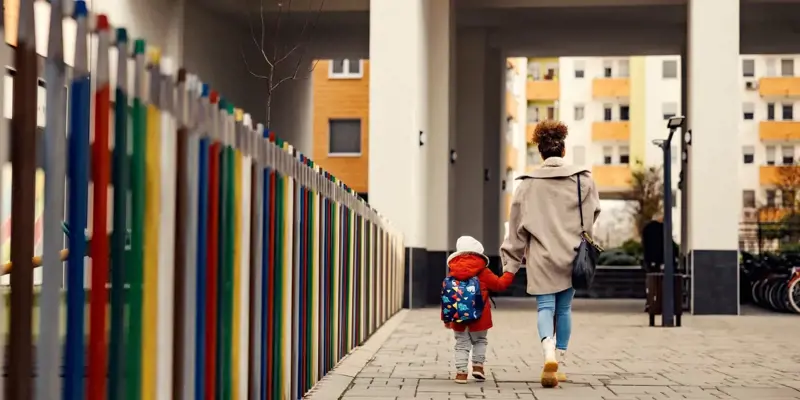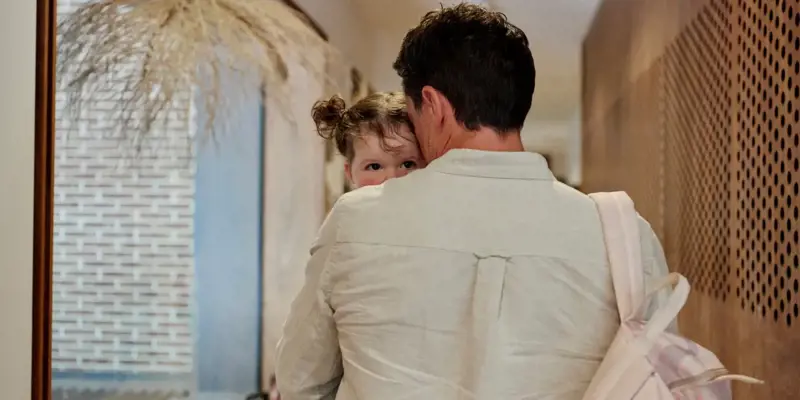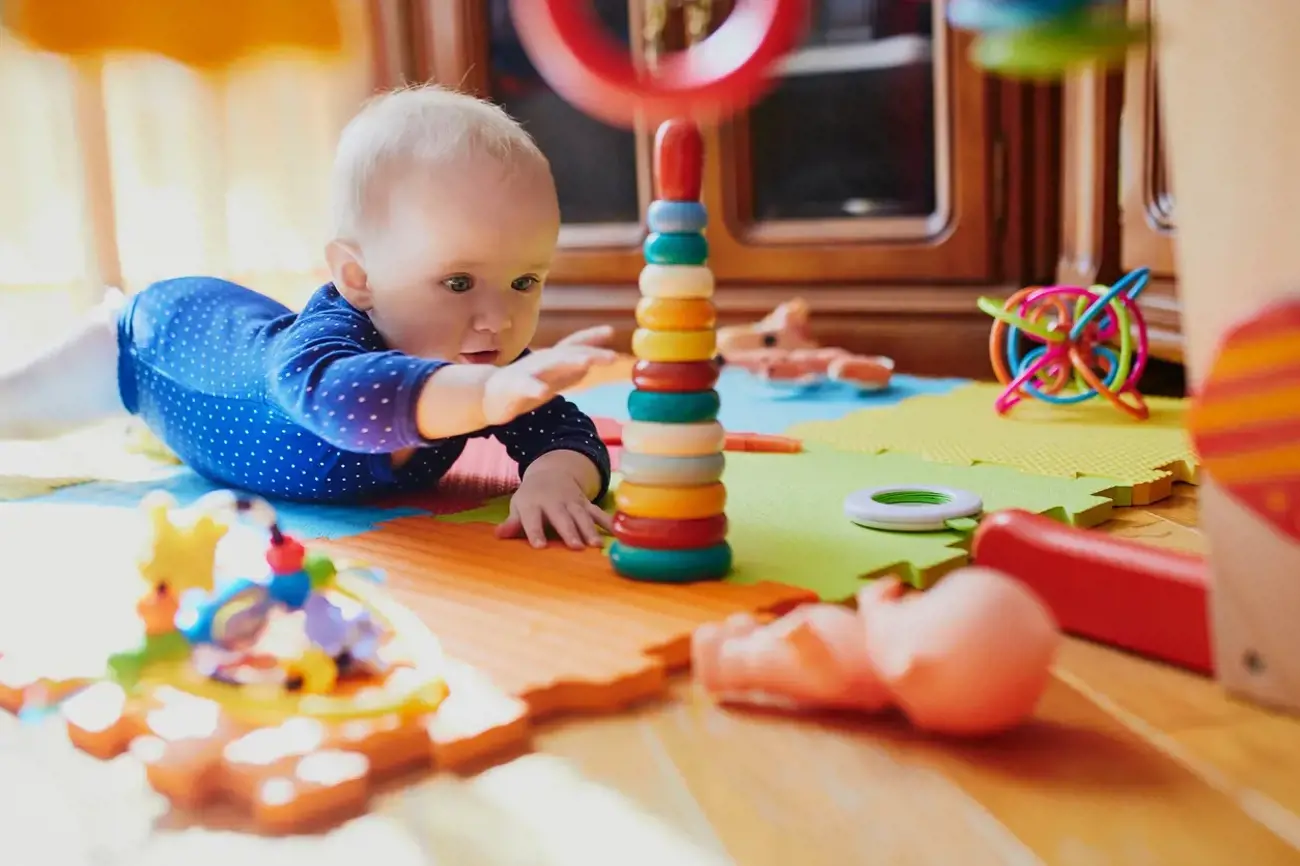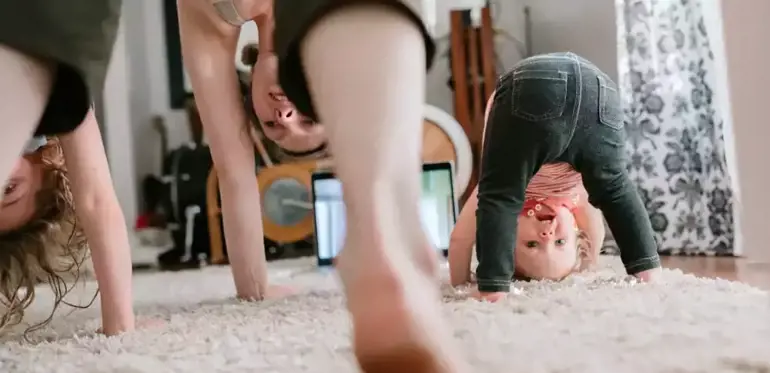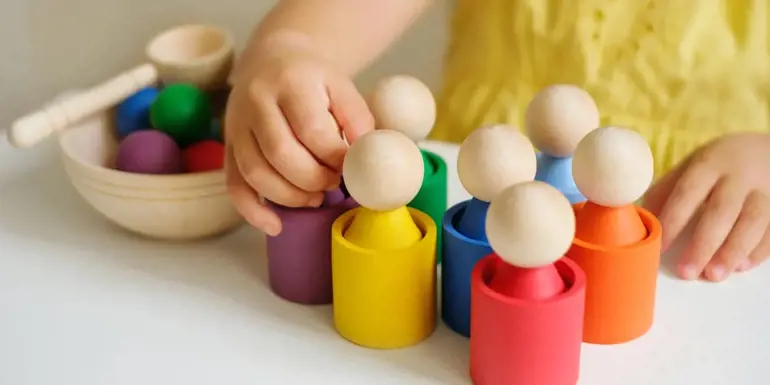Finding a childcare service for your toddler is one thing, but finding the right care for your baby is often an entirely different story. Not all families have the opportunity to stay home with their little ones during those first few months, but luckily many childcare services offer a safe and nurturing environment for your littlest family members. Infants and babies often require more one-on-one care and attention compared to toddlers and older children, so when it comes to finding the right childcare, there are slightly different factors to consider.
Explore our guide to learn more about the 10 points you should consider when choosing a childcare service for your baby.
1. Curriculum and developmental programs
The first two years of your baby’s life are essential for their development. They learn to communicate, develop their motor skills, express their emotions and develop a level of self-awareness. With so many important milestones during this time, it’s important to make sure that the early childhood education and care service you choose offers a range of age-appropriate programs that are tailored to your bub’s developmental needs.
Their curriculum should embrace the Early Years Learning Framework and promote cognitive, emotional and social development to help set your baby up for success in the future.
2. Access to infant and baby-specific resources
While we’re on the topic of dedicated developmental programs for infants and babies, it’s also worth considering what kind of resources, spaces and activities the childcare provider has available to support your bub’s development.
Although it’s important that the childcare service places an emphasis on play-based learning, it should also offer a variety of different activities that engage babies and encourage growth. This can include activities like?:
- Tummy time,
- Storytime,
- Baby and infant-friendly resources,
- Outside play, and
- Sensory play.
3. Qualified early childhood educators and staff
When you send your baby to childcare, you want to ensure they’re getting the best possible care, so it’s always worth checking the qualifications and training of the staff members, including caregivers and educators. Not only should they have relevant qualifications in early childhood education, but they should also be trained in first aid and child CPR.
Early childhood education and care services should provide staff with regular training and professional development opportunities to remain current with advances in early childhood education and care and improve their skills and practice. In turn, this helps to enhance the positive development of the children in their care.
4. Educator-to-child ratios
Babies require more one-on-one attention and care compared to toddlers and older children, so it’s important that the childcare service provides the right educator-to-child ratios depending on your baby’s age. Not to mention that the National Quality Framework (NQF) details specific ratio requirements depending on the type of childcare service and the age of the children.
In a childcare service, for children aged from birth to 24 months, there must be at least 1 educator to four children. This requirement is the same across all states and territories. As for family day care settings, there must be at least 1 educator for every 7 children and they can only have a maximum of 4 children preschool age or under at any one time. This also includes the educator's own children.
5. Licensing and accreditation
Most childcare centres and family day care providers are assessed according to the National Quality Standard (NQS). Under the NQS, childcare providers are assessed based on the following 7 quality areas:
- Quality Area 1 – Educational program and practice,
- Quality Area 2 – Children's health and safety,
- Quality Area 3 – Physical environment,
- Quality Area 4 – Staffing arrangements,
- Quality Area 5 – Relationships with children,
- Quality Area 6 – Collaborative partnerships with families and communities, and
- Quality Area 7 – Governance and leadership.
The provider is given an overall rating based on their performance against each of the quality areas. This rating must be displayed at the service at all times.
Reviewing the childcare service’s quality ratings can give you a good idea of the level of service offered. Plus, this can be a great way to compare different service providers.
6. Nutrition and feeding
It’s important to ensure that your childcare provider can accommodate you and your baby’s feeding preferences. If you’re still breastfeeding and it fits into your schedule, you may want to check if you’re able to visit the childcare provider during the day to continue to breastfeed your bub. Many childcare providers encourage breastfeeding mothers to visit throughout the day. Plus, it can help your little one to settle into their new care environment.
If your child has moved onto solids, it’s worth checking whether your childcare service provides nutritious meals and snacks for infants or whether you have to provide them yourself.
7. Health and safety
As a parent, the health and safety of your baby is a top priority, so you’ll want to make sure that’s also the case at any potential childcare services. Ensure that the facility adheres to strict health and safety regulations, especially when it comes to cleanliness, hygiene and childproofing. Don’t be afraid to ask about their policies on illness, vaccinations and emergency procedures. They should be able to provide these all to you without question if they’re not already available on their website.
8. Communication
Good communication with parents and caregivers is an absolute must. Ask any potential childcare services about the methods they use to keep parents informed about their child's daily activities and progress. Regular updates, notes and meetings should be part of the communication process.
Many childcare providers use digital portals to share what children get up to each day. From photos and observations to weekly reviews, these types of learning stories allow parents to comment, share and build on their baby’s learning when they’re at home.
9. Availability
Good childcare providers are often incredibly popular, so they don’t always have positions available to accommodate your bub straight away. Sometimes you might be able to apply to be put on the waitlist to secure a position, but otherwise, it can be worth getting organised early if you’re set on getting into a specific childcare service.
10. Childcare fees
Childcare is a significant expense, especially when it comes to younger ages. Childcare for infants and babies is often more expensive than for other age groups because of the high level of care and attention they need. Plus, with a lower educator-to-child ratio required for children ages 0-24 months, the staffing requirements are a big driver of cost for this age group.
Each individual childcare provider has their own fee structure, so it’s always worth checking in to see how much they charge and what their fees include. Some childcare providers will include supplies, nappies and meals, whereas others might not.
Eligible families may also be able to apply for the Child Care Subsidy (CCS) to help with the cost of childcare. This subsidy is paid directly to the childcare provider and the benefit is then passed onto families as a fee reduction.
Care for Kids can help you find the best childcare for babies
At Care for Kids, we’re here to help you find the right childcare for your baby. As the number 1 childcare search platform, you can shortlist, compare and secure childcare in your local area. And if that wasn’t enough, we’ve also got plenty of resources to help you on your childcare journey.
























